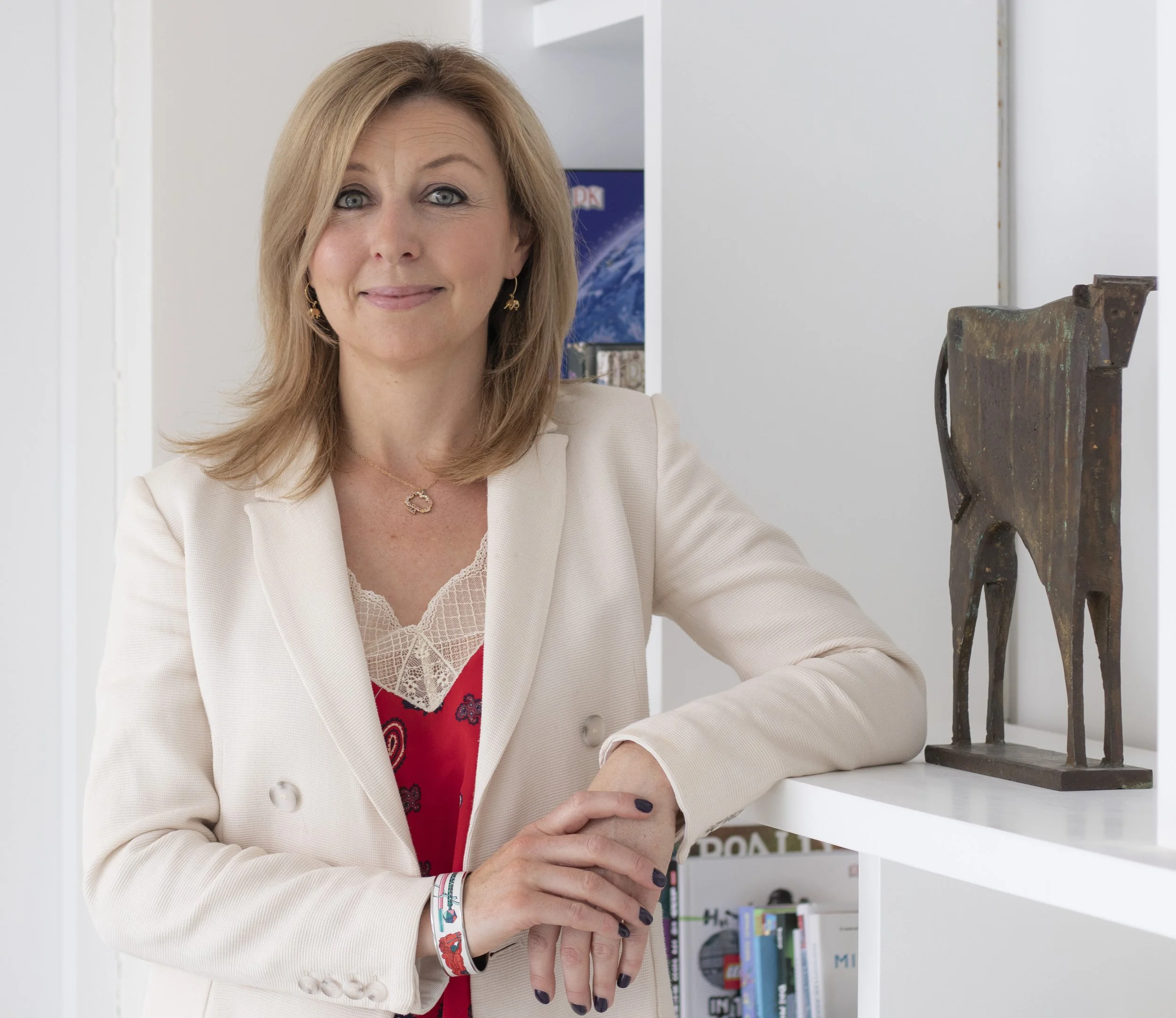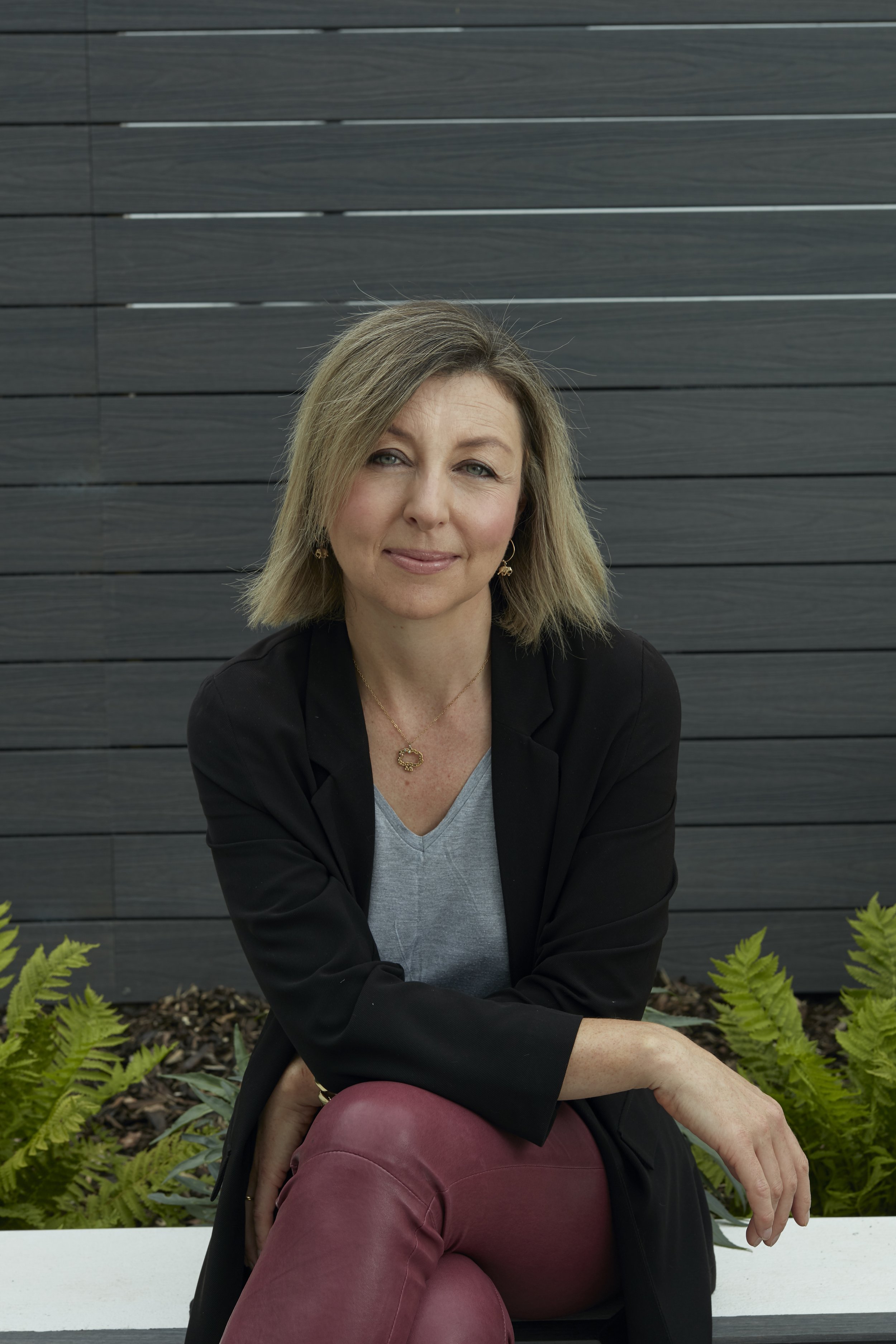Motherhood on Trial
Journalist Edel Coffey is garnering rave reviews for her first novel, Breaking Point.
It’s both thoughtful, and a page turner. She talks to Carissa Casey about what inspired her to write about every parent’s worst nightmare.
It’s one of those horror news stories that occurs more often than it should. A stressed parent forgets their baby in a car, sometimes resulting in a tragic outcome. For journalist Edel Coffey, battling with the “domestic maelstrom” of having two babies within two years, one such awful story left her reeling.
“To me it was this emblem – the worst outcome of this life we’re all living. We’re running on empty, crazy work demands, crazy personal demands, phone on all the time so you can be contacted at any time, emailed at any time. These expectations that are on us from work, from life. Our own expectations, the expectations of mothers, which was something new to me.
But also that idea that if you’re not doing it perfectly, you’re failing,” she recalls.
So when she decided to take whatever time she could find away from breast feeding, puréeing and changing nappies, she began to write about it. And the result is a beautifully-written, fast-paced, cliff hanger of a novel, Breaking Point. The central character, Susannah, is the kind of woman, other women envy - she’s a successful doctor, with a successful husband and two adorable children. But then on the hottest day of the year, her morning routine is interrupted and she leaves baby Louise in the backseat of her car. By the time Susannah remembers her mistake, it is too late. This very private woman finds herself on trial for negligence and centre stage in the media circus that ensues. While Susannah is the dock, it feels as if motherhood itself, what it should or shouldn’t involve, is also on trial.
“There are so many judgements, so many expectations (of motherhood). And it is very public. You’re out and about with a baby and people do comment,” says Edel. She recalls sitting in a coffee shop with her baby proofing some pages. “This man sitting across the way said something like ‘I think she wants to play’. I was like, don’t we all. But I just said, yeah, yeah or something like that. She (the baby) was sitting in her buggy, she was perfectly happy. But he was commenting on the fact that I wasn’t engaging with her for those twenty minutes. I still remember on that moment, that I felt a pang of guilt.”
For Edel, motherhood was a “giant culture shock”, which eventually led to her writing creatively, something she had always wanted to do.
“It was the first time in my life that I was not working in the way I had worked. I always had two jobs on the go. I was always really busy, working all the hours god sent. Even though I was busy because I had just had a baby, my brain wasn’t involved. You know when you write all day, you don’t want to go home and start writing again? But I was really, really missing work. I experienced a total loss of identity. If I’m not a journalist what am I? I Started writing just to fill that intellectual hole in my life.”
It made sense to write about what she was actually experiencing, asking the questions she was posing to herself. “How can you still be yourself and be a mother? How can you keep going at the same pace that you were going before? How does anyone work full time and do this? How does anyone who is a sole parent do this? … I was in shock for a very long time to be honest. And then I had a second baby very quickly so I had two within two years. And that just increased the - let’s just call it what it was – that increased the madness.”
Prior to having her babies, Edel was thriving in her career. She was an arts journalist on the Sunday Tribune, eventually becoming arts editor. She edited the Weekend Magazine for the Independent and was books editor. She also worked at RTÉ as both a presenter and a reporter. “Women of my generation, we’re so used to achieving career wise. So ‘we’ve got this’. We all have careers, we’re good at them, we like succeeding,” she says. “And then suddenly you’re in this situation where it doesn’t really feel like you’re succeeding.
"You can apply the rationale to the baby but the baby doesn’t respond to the rationale. All the feedback is comparative. I try to be really honest about motherhood. If I had heard, this is really hard, I’d feel it’s normal, everyone finds it hard. But a lot of people are afraid to admit that.”
“A lot of people, they look like they’re doing really well but they’re at the edge of their contingency. They’re working like a maniac but they turn up at the school gates or the office looking perfect and everything’s fine. But inside their hearts are racing, and they’re stressed because they know that in five hours’ time they have to get back to the creche, or back to pick up at the school.”
This is the life of the fictional Susannah, until things fall apart. Another key character in the novel is Adelade who, not surprisingly perhaps, is a journalist covering the trial. “I am highly aware of how, not just mothers, but women are judged in the media. You see it everywhere, how women are described in newspapers, how their clothes are described. Often it’s so normal that we don’t even notice how ridiculous it is, or how judged we are because it’s completely normalised, completely absorbed by us,” she says.
While she didn’t find writing easy, she did find it enjoyable, a break from the mayhem of domesticity “which I wasn’t enjoying”. And she somehow managed to eke out enough time to write the book in about a year. “It (writing) wasn’t for long, sometimes only for 20 minutes a day. I’d park outside the school 20 minutes before the kids were due out and I’d use that time to type the story.
Breaking Point by Edel Coffey is available now.
She wrote fast because she had so little time. “I think it also made it the kind of page turner that people are saying it is.
When you’re writing under pressure, you just end up getting the most important details of the story down, it’s not about lengthy descriptions.”
And the process she describes as “lovely because it was an escape”. “I was using my brain. This was me, this was Edel the writer, Edel the journalist. This is what I do. I missed myself.”







